Protest against korean giant
The anti-Samsung protest marks its third anniversary in Korea. In Indonesia, workers protest over the company's minimun wage policy.
maaf email atau password anda salah

The anti-Samsung protest marks its third anniversary in Korea. In Indonesia, workers protest over the company's minimun wage policy.

The government reduced the price of plane tickets in the run up to Christmas and the New Year. Many components of these high prices need to be re-examined.

The Batanghari River is becoming increasingly polluted from illegal mining. This is a result of corruption and policies that ignore the environmental carrying capacity.

The potential for conflicts of interest is overshadowing the new leadership of the KPK. The process is prone to external intervention.

Prabowo Subianto wants regional heads to be once again selected by Regional Legislative Councils. This would weaken democracy and deprive the people of a voice.
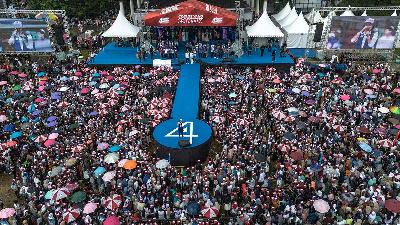
A number of regional head candidates spent billions of rupiah in the 2024 elections. The elections were rife with money politics.
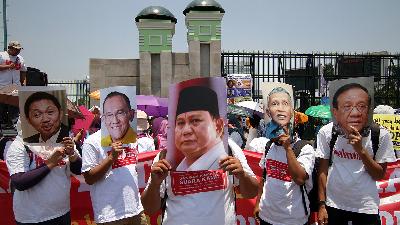
Efforts to return the election of regional heads to the DPRD emerge under every administration. Direct elections are considered more democratic.

Prabowo Subianto wants to have direct regional head elections be conducted through regional legislative councils. His supporters are maneuvering to push the plan through.
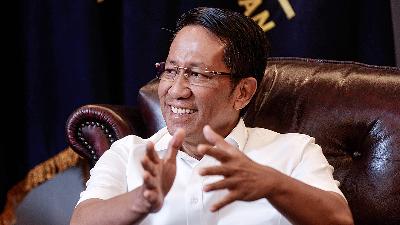
Supratman Andi Agtas explains President Prabowo’s idea to hold indirect regional elections or Pilkada.

Illegal mining exacerbates the critical condition of the upstream Batanghari River Basin Area (DAS). The fraudulent practices involve many actors.
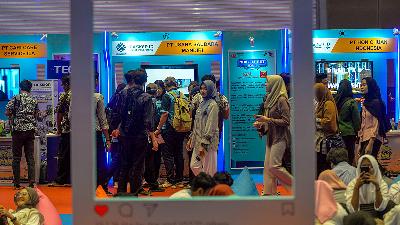
The unemployment rate among Generation Z tends to be high. They are considered less resilient, but possess great potential.

The government lowers air ticket prices during the Christmas and New Year period. State-owned enterprises sacrifice, but the root causes remain untouched.
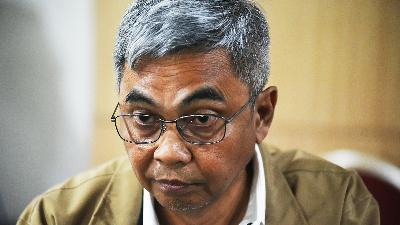
KPK’s new chief, Setyo Budiyanto, is confident in tackling investigation and prosecution challenges and determined to unite all staff under his leadership.
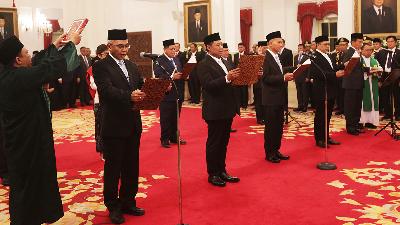
Doubts arise over the track records of the 2024-2029 KPK leaders. Some were implicated in gratuity cases.
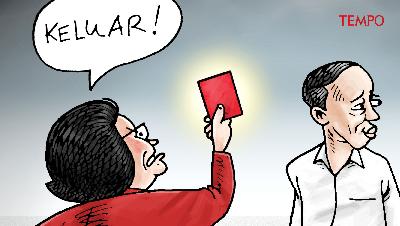
Cartoon: Yuyun Nurrachman

The coming year, 2025, poses significant risks to Indonesia. The government and Bank Indonesia are exacerbating the situation by adopting the risky policy of debt monetization.

Agung Sedayu Group’s right of reply regarding the interview with Aguan, and letter on the free lunch program.

Radical evil holds the view that evil only exists outside of us. This closes off the possibility that evil could be within us.
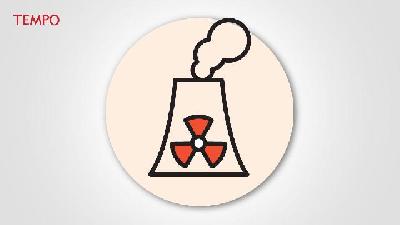
The Prabowo administration has ambitions to start building a nuclear power plant next year. There are many aspects still open to question.

The Sahbirin Noor corruption case once again exposes conflict of interest within the KPK. It shows how outside forces continue to pull strings.

Prabowo Subianto refused a demand from the Ridwan Kamil-Suswono pair to challenge the Jakarta gubernatorial election results. Signs of divergence with Jokowi.

The JETP program failed to proceed in line with the plan because only a small amount of the assistance funds were disbursed. Indonesia actually increased the number of coal-fired power stations.
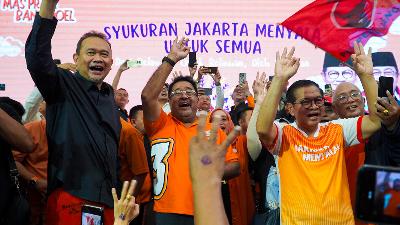
Pramono Anung’s political career is quite impressive. He chose to remain neutral during Jokowi’s conflict with the PDI-P.

President Prabowo Subianto ordered Ridwan Kamil and Suswono to cancel their planned lawsuit regarding the Jakarta gubernatorial election results at the Constitutional Court, contrary to Jokowi’s wishes for a two-round Jakarta election.
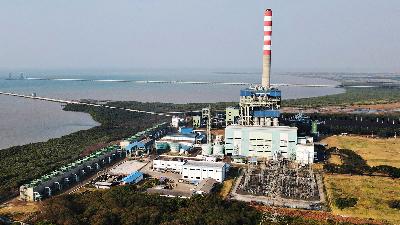
The plan to retire the Cirebon 1 PLTU early is stalled. PLN is requesting an assignment scheme to avoid accusations of causing state losses.

Cartoon: Imam Yunni
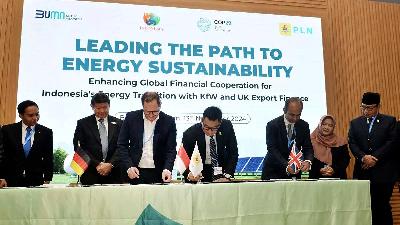
The funding needed for energy transition is difficult to fulfill. The JETP scheme is stalled, and alternative funding remains elusive.

The JETP energy transition program is at a standstill. Captive power plants hinder the preparation of investment plan documents.
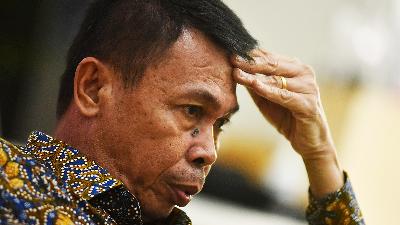
The KPK claimed to have obtained hundreds of evidence in Sahbirin Noor’s bribery case. Still waiting for investigators to formulate the case.
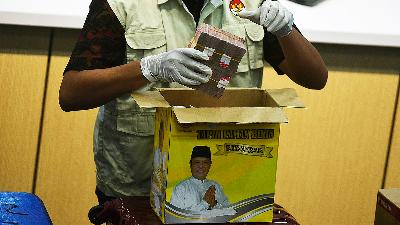
Two directors at the KPK are suspected of obstructing the designation of Sahbirin Noor as a suspect. Investigators already reported this to the commission’s leadership.
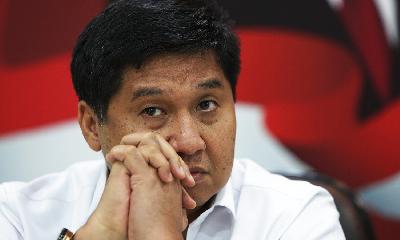
Housing and Settlement Minister Maruarar Sirait on the three million homes project, and his relationships with Jokowi and Prabowo.
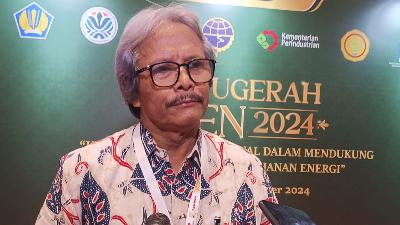
Hashim Djojohadikusumo, head of the Indonesian delegation at COP29, revealed that Indonesia wants to develop nuclear energy. Are we ready?

The government is considered hasty in building the first nuclear power plant. Everything is imported, from technology, expert personnel, to fuel.
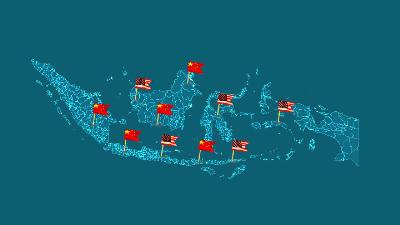
The trade war between the US and China is poised to create significant challenges for the global economy. However, the Indonesian government appears indifferent.

The legal division of Agung Sedayu Group replies regarding Aguan’s interview over the IKN.

Asian writers no longer explore grand themes such as war and peace, man’s fate, or this earth of mankind. Is this noticeable shift an allegory of social change?

The government amended the beef import regulations in order to smooth the way for the free nutritious meal program. This will have a negative effect on the management of the livestock sector.

The investigation into the killings of a father and a grandmother by a 14-year-old boy must uncover the real cause. The child should be treated as a victim.

Prabowo continued Jokowi’s methods of bringing about victory for favored candidates. This damages state institutions.

Development through the model of national strategic projects is a source of conflict and violations of human rights. One of the causes is excessive favorable treatment in the implementation of projects.
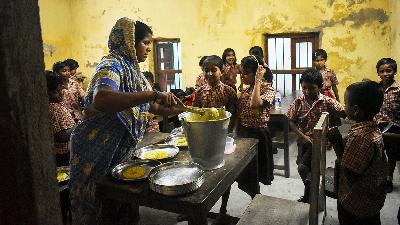
Indonesia still lags behind other countries that already implemented free school lunch programs.

A former subordinate of President Prabowo won the regional head election in North Sulawesi. There are suspicions that the police and military helped ensure his victory.
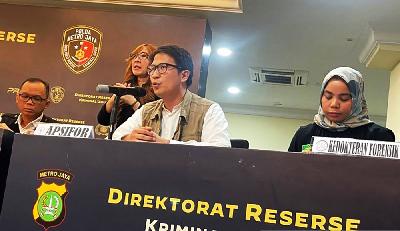
The psychologist’s take on the murder of a father and a grandmother. The perpetrator is only 14 years old.

A 14-year-old student, who killed his father and grandmother, is suspected of experiencing academic pressure from his parents and sleep deprivation.
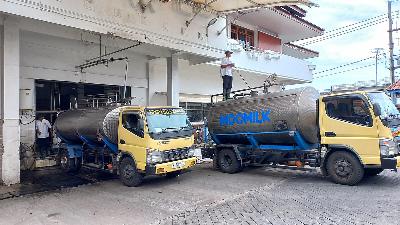
The government will issue regulations requiring the industry to purchase local milk. There are issues with quality and unscrupulous actors.
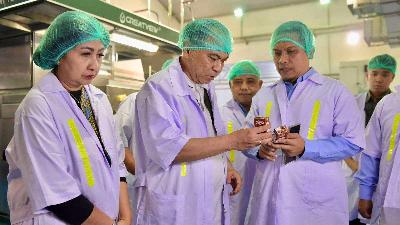
The government is involving cooperatives and private companies in the free nutritious meal program, which they hope will bring additional capital.

The government asks businesses to assist in importing cattle for the free nutritious meal project, with import recommendation issuance becoming the leverage.

Agung Sedayu Group Chief Sugianto Kusuma alias Aguan talks about Nusantara Capital City, the national strategic projects and oligarchy.

Aguan is involved in various government flagship projects. He started out in the import business.

Aguan participates in the construction of three million affordable homes, amid suspicions of receiving project rewards from the government.
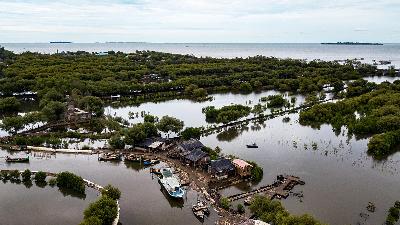
There are various problems at Pantai Indah Kapuk 2 and the strategic mangrove forest tourism project. Aguan claims no one is at a disadvantage.
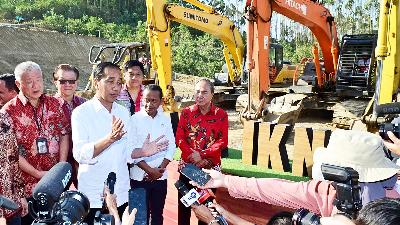
Under Aguan, a group of conglomerates pooled funds to develop the new capital city in a bid to attract foreign investors.

The government’s economic policies fail to inspire investor confidence, leading to a turbulent time in the market ahead

Mythical symbols of religion, like stains or sins, can open the mind to the possibility of human fallibility and wickedness.
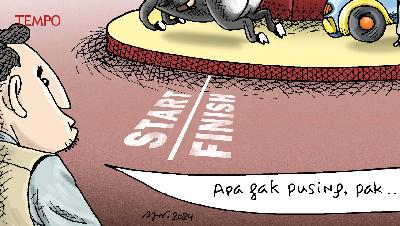
Cartoon: Yuyun Nurrachman

Reader’s letters from a non-formal teacher, locally known as a guru sertifikasi (certified teacher), who complains about not receiving allowance. Other readers raise concerns about the role of civil society and the CIA’s alleged involvement in a secret mission behind the failed coup attempt by Indonesian communists, known as the G-30-S PKI movement.

A total of 117 lakes in West Java and Banten are shrinking, or even disappearing. These national assets should not be forgotten.
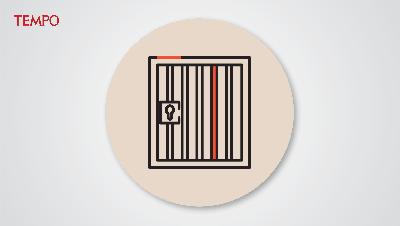
The problem of overcrowding in jails has never been resolved. The law enforcement authorities need to put forward alternatives to punishment.
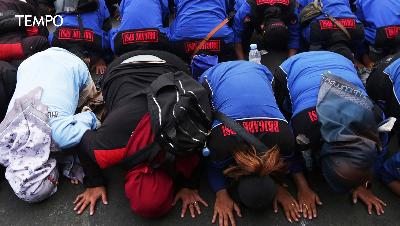
Pramono Anung is leading in the Jakarta gubernatorial election. This is a form of resistance to intervention from the national leadership.

The government is increasing the 2025 provincial minimum wage. This ignores national economic conditions.
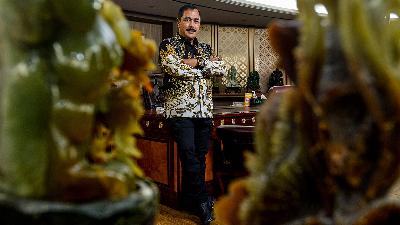
Immigration and Penitentiary Affairs Minister Agus Andrianto on the issues ranging from the inmate escapes from Salemba Detention Center to Mary Jane’s repatriation.
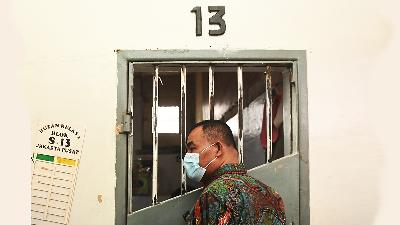
The Salemba Detention Center guards are suspected of negligence in the case of seven inmates escaping. It is alleged that someone supplied tools to the escapees.
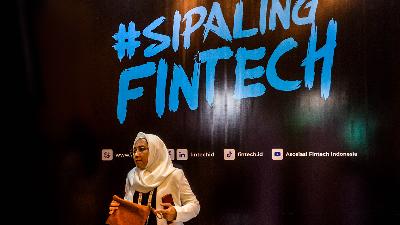
A subsidiary of the peer-to-peer lending platform KoinWorks falls victim to an alleged fraud, resulting in a loss of Rp365 billion. Lenders are now threatening legal action.
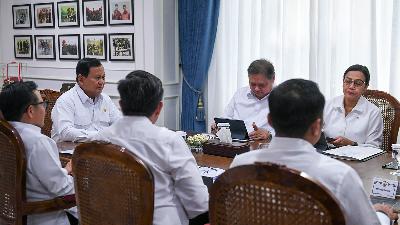
The government finally set the average minimum wage increase at 6.5 percent, following a tug-of-war over the calculation formula after the Constitutional Court annulled the labor cluster in the Job Creation Law.

Prabowo Subianto and Joko Widodo are maneuvering to ensure that the Jakarta gubernatorial election proceeds to a second round. Pramono Anung is predicted to win the election.

Cartoon: Imam Yuni
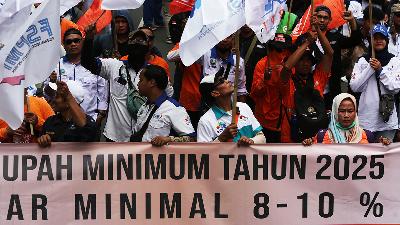
The government announced the provincial minimum wage during ongoing negotiations about the value of the alpha variable.
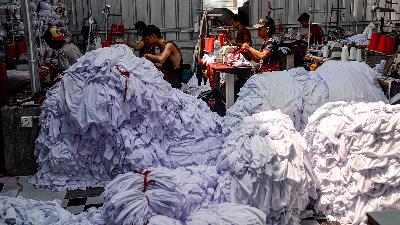
Textile industries seek a special waging policy. They fear being unable to pay minimum wages amid low demand.
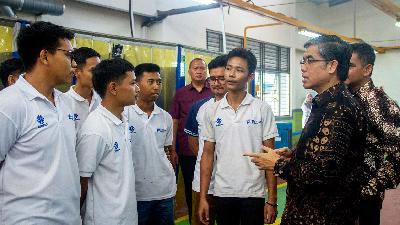
The government repeatedly revised the formula for calculating minimum wage. Policy changes create uncertainty.
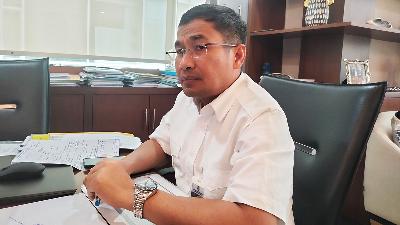
Long-delayed decrees to establish legal boundaries to restore and protect lakes from exploitation require cooperation across government and local agencies.

The regulation on determining lake boundaries begins to be executed. It reduces repurposing and state losses resulting from the loss of lakes.

The second season of Squid Game is coming soon. What is the point of this brutal death porn?

Readers’ letters from three million houses provision to suggestion that officials be open to criticism.
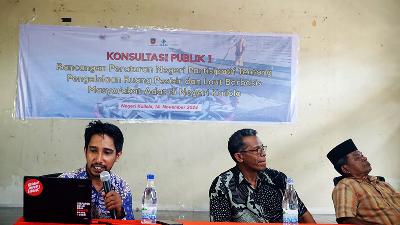
The people of Kailolo draft regulations for the enforcement of marine sasi, aimed at improving coral reefs in their area.
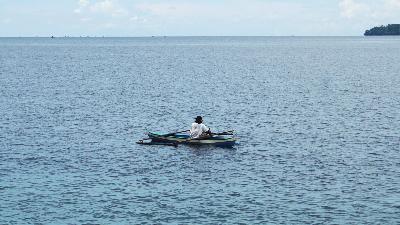
In Maluku, the sasi tradition is also applied to various natural resources to ensure their sustainability and quality.

Amid rampant fish poaching in Indonesian waters, traditional communities in Maluku enforce sasi, a practice that protects the seas and coasts.

The Agriculture Ministry is to take over the control of food institutions and state-owned enterprises. This risks worsening the management of the food sector.

The agreement between Prabowo and Xi Jinping to jointly manage the region of overlapping claims disadvantages Indonesia.

Cases of sexual violence on campus often go unresolved. Campus task forces established to handle these cases should include legal experts.
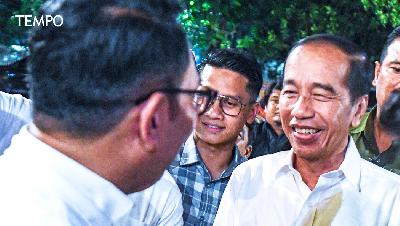
Jokowi is backing a number of candidates in the regional elections, including in Jakarta and Central Java. It is time Prabowo drew a line under his relationship with the former president.
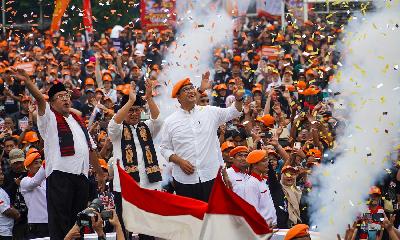
Pramono Anung successfully secured Anies Baswedan’s support in the Jakarta gubernatorial election. There seems to be a political deal ahead of 2029.
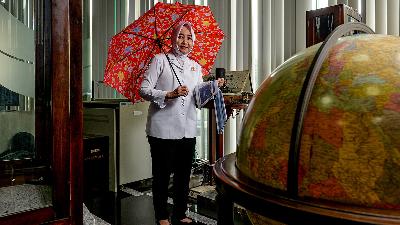
BMKG Chief Dwikorita Karnawati on the extreme weather phenomenon triggered by environmental destruction and the potential for megathrust earthquakes.
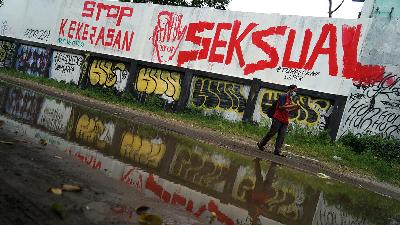
Cases of sexual violence remain high on campuses.
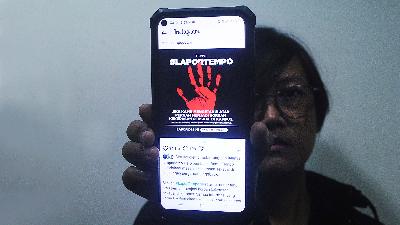
As a form of public participation, Tempo provides Lapor Tempo to accommodate reports from victims of sexual violence on campuses.

The Sexual Violence Prevention and Handling Task Force often encounters obstacles when dealing with sexual violence cases on campus. Victims feel they do not receive justice.
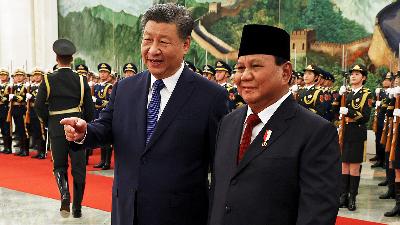
The joint statement between President Prabowo Subianto and President of China Xi Jinping on the South China Sea triggers a polemic. It weakens Indonesia’s position in the Indo-Pacific region.
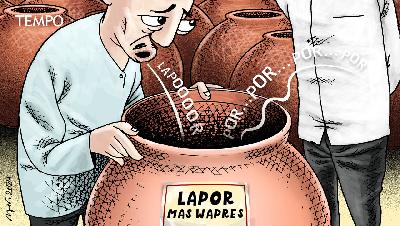
Cartoon: Yuyun Nurrachman
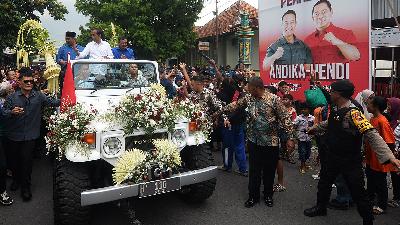
The PDI-P is wary about Jokowi and Prabowo's support for Ahmad Luthfi in the Central Java gubernatorial election. Police are suspected of pressuring business owners for support.

Former President Joko Widodo maneuvered to secure a victory over Ridwan Kamil in the Jakarta gubernatorial election. He orchestrated a scenario for a second round against Pramono Anung and encouraged Prabowo Subianto to support the Ridwan-Suswono ticket.
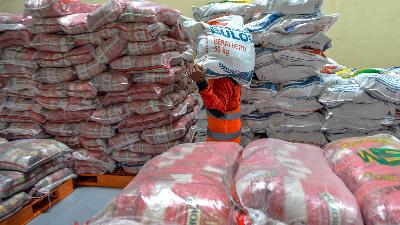
Prabowo Subianto intends to place Bulog under the president’s control, changing its autonomous status and eliminating its commercial functions.
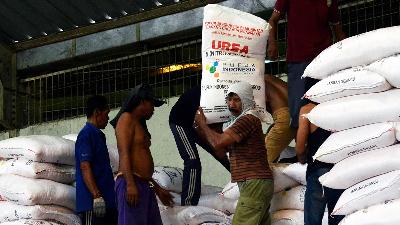
Agriculture Minister Amran Sulaiman aims to take control of state-owned enterprises in the agriculture and food sectors in an attempt to orchestrate food self-sufficiency.

Minister Amran Sulaiman recommends changes to regulations on food sector institutions, citing self-sufficiency as the primary reason.

No countercyclical stimulus is forthcoming from Bank Indonesia or the government, even as Indonesia’s economy slows. There is no new hope on the horizon.

Disobedience has a price. The cost of civility is enormous.

The new Tempo’s website is easier to navigate. Hopefully, Tempo will remain consistent in reporting.

The government writes off non-performing loans of fishermen and small business owners. Detailed criteria can prevent moral hazards.

Hashim Djojohadikusumo is leading the Indonesian delegation at the climate change conference COP29 in Azerbaijan. But he is more a representative of corporate interests.

The new government is trying to erase traces of past human rights violations. This hurts the victims and their families.

The investigation into the Communication and Digital Affairs Ministry employees backing online gambling is expanded to include many people. Ill-gotten gains from a political operation.
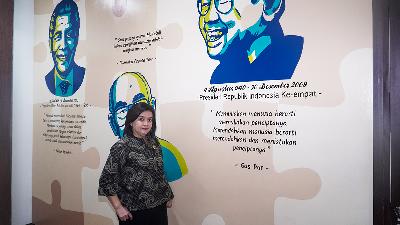
National Commission on Human Rights (Komnas HAM) Chair Atnike Nova Sigiro on human rights enforcement in the Prabowo Subianto era.
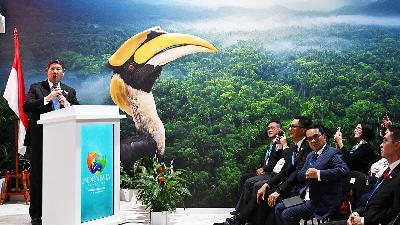
The presence of Hashim Djojohadikusumo at COP29 in Azerbaijan was considered as bearing a conflict of interests. He was promoting the business of Arsari Group.
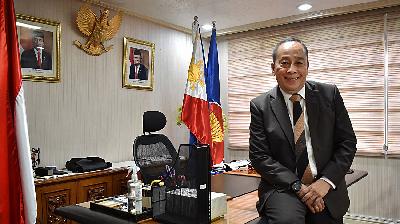
Former Governor of the National Resilience Institute and Indonesian Ambassador to the Philippines, Agus Widjojo, on the revision of the Indonesian Military Law.
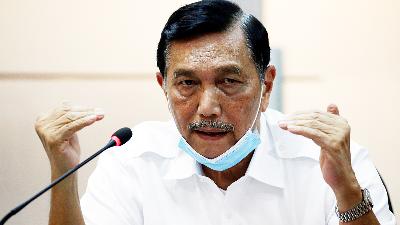
An interview with Coordinating Minister for Maritime Affairs and Investment Luhut Pandjaitan on mining permits for mass organizations and his relationship with Bahlil Lahadalia.
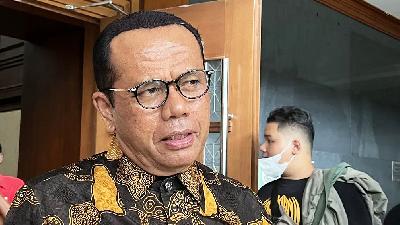
An interview with Juniver Girsang, the lawyer of Fajar Bhakti Lintas Nusantara directors, on the role of the Coordinating Minister for Maritime Affairs and Investment Luhut Pandjaitan in the internal dispute of a nickel company.
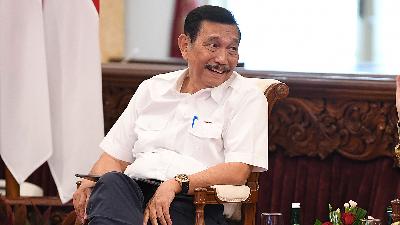
An interview with Coordinating Minister for Maritime and Investment Affairs Luhut Binsar Pandjaitan, who has a role in a dispute at a nickel corporation.
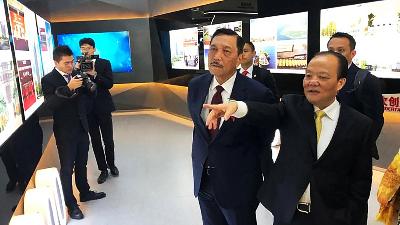
Minister Luhut Pandjaitan is personally mediating a conflict involving a Chinese nickel company. The strife involves reports to the National Police.
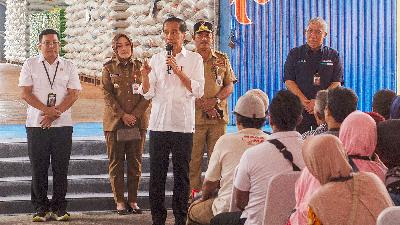
The 2024 State Budget’s automatic adjustment funds are redistributed to social assistance programs and fertilizer subsidy. This policy may be in violation of two laws.

Ario Bimo Nandito Ariotedjo, Minister of Youth and Sports, writes a response to information in the article How Pratikno Became Jokowi’s Political Operator.
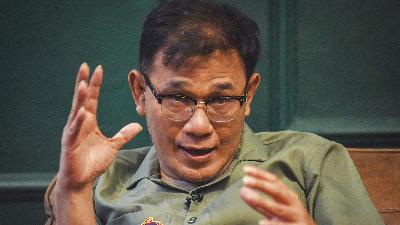
Budiman Sudjatmiko persuades other activists to support Prabowo Subianto. He claims he is not motivated by money.
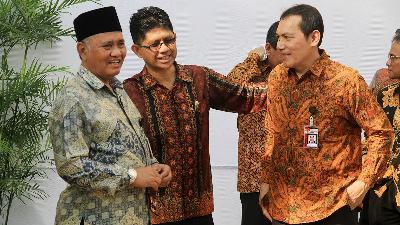
Deputy Chairpersons of the Corruption Eradication Commission for the 2015-2019 period are visibly supporting Agus Rahardjo regarding a meeting allegedly to have taken place at the State Palace. Who is lying?
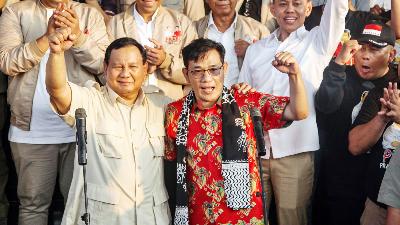
News summary, from the dismissal on Budiman Sudjatmiko to Food Estate.
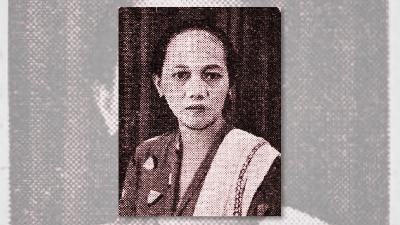
It takes courage to expose what really happened in 1965, including about Gerwani and its leader Umi Sardjono. To this day, people still hate each other based on a concocted history.
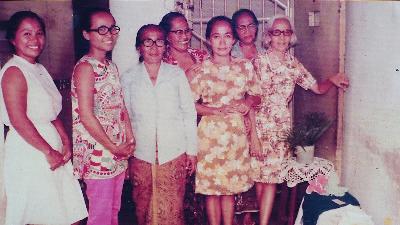
Tempo again presents a special report as an effort to verify the historical claims manufactured by Suharto’s regime surrounding the September 30, 1965 tragedy. This time, we wish to present the life, activism, and ideas of Gerwani Chair, Umi Sardjono.
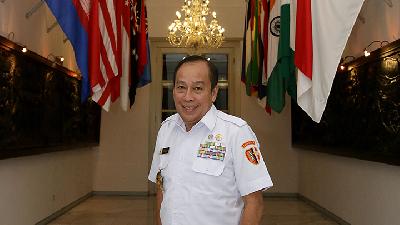
The army’s role in the recent sweeping operation to bring down the banners bearing Islam Defenders’ Front leader Muhammad Rizieq Shihab around Jakarta unsettled Agus Widjojo, governor of National Defense Institute (Lemhannas).
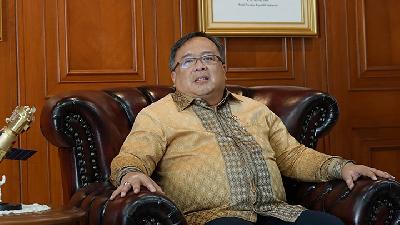
Research and Technology Minister Bambang Brodjonegoro has a new task in hand. As head of the National Research and Innovation Agency (BRIN) he is responsible for down-streaming the results of studies by universities and research institutes.

FOR the third time, the Vatican has chosen an Indonesian archbishop to be Cardinal of the Roman Catholic Church. On October 5, last year, Jakarta Archbishop Monsignor Ignatius Suharyo Hardjoatmodjo was installed by the head of the Holy See Pope Francis as one of the 13 new cardinals or ‘princes’ of the Church.
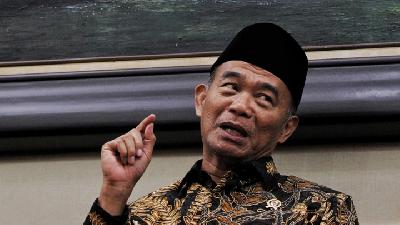
EDUCATION and Culture Minister Muhadjir Effendy saw himself becoming the bane of some parents’ life in the past month.
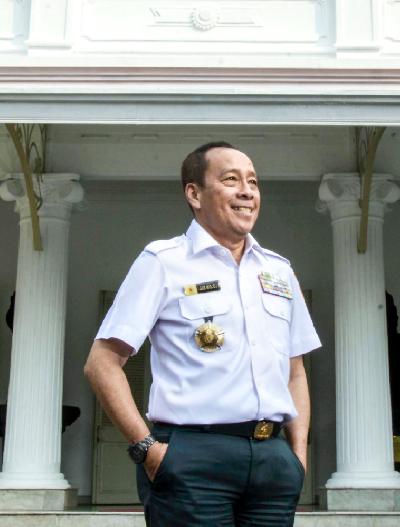
Even at times like these-when the public calls for the revision of the anti-terrorism law to expand the army's role in the fight against terrorism-Agus Widjojo remains nonchalant.
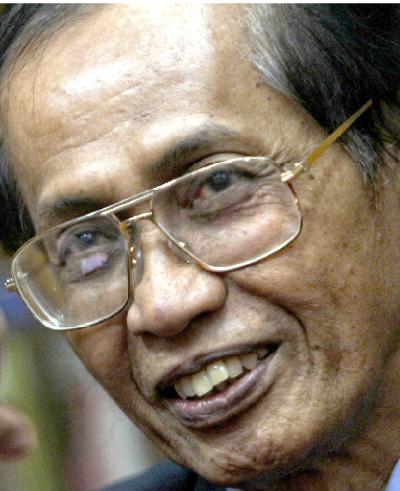
DURING his 18 years in office as a Supreme Court judge, Artidjo Alkostar has handled tens of thousands of cases.

Dewa Budjana gave a sparkling performance at the Jazz Buzz Salihara. Acting laid back, he was accompanied by a string quartet and a vibraphone.

Amir Hamzah emerged as a young intellectual who founded Poedjangga Baroe, the time period’s most influential literary magazine. He promoted the use of Indonesian through poetry and prose.

LESS than a year on the job as minister for villages, development of disadvantaged regions and transmigration, Eko Putro Sandjojo still cannot see how budget spending can prove to be a problem. This year, after nearly one semester, only 16 percent of his ministry's budget has been spent. In the private sector, when you spend money, you have to take cash flow into consideration, but you don't need to do that in the government," he explained to Tempo.

Chairman Agus Rahardjo was riveted by the list of US Navy defense equipment, complete with their budget details. The chairman's laptop was accessing the website of the US Navy Secretariat. "Everything that is secret here is very open over there," said Agus, who started his term leading the Corruption Eradication Commission (KPK) in January 2016, in an interview with Tempo last week.
Agus said open access to the US Navy budget details meant corruption on even the smallest item would be noticed. Likewise, he urged citizens to serve as an extension of the KPK to ensure that not a dime of state money goes to corrupt pockets. "Every Indonesian must take part in monitoring," he said. The day before, he spoke with lawmakers at the House of Representatives (DPR) on ensuring the clean use of the state budget.

Minister of Education and Culture Muhadjir Effendy has proposed 'full-day schools'. Without any prior studies, this idea has only elicited groans.

With the end of Ramadan fast approaching, Bambang Brodjonegoro's busy schedule has just begun. His days are filled with one ministerial meeting after another. He must also keep monitoring two legislative bills currently being discussed by the House of Representatives (DPR) to ensure that they are passed by the end of the month as scheduled. One bill concerns the revised state budget (RAPBN-P) and the other is on the tax amnesty.
The revised state budget will be slashed by Rp90 trillion to account for declining revenues. Another way of addressing the shortfall is through tax amnesty, which is expected to bring additional revenues of up to Rp165 trillion. Bambang sincerely hopes the DPR will enact the two legislations. "The government's program, including the revised state budget, should be backed by the parties claiming to support the government," said Bambang.

In a small visitors room across the swimming pool at his home in South Jakarta, Coordinating Minister for Politics, Legal and Security Luhut Binsar Pandjaitan welcomed the Tempo investigative team last week. He claims not to know Mayfair International Ltd., a shell company in the tax-haven Republic of Seychelles off the shore of East Africa, although his name is listed as its only director.
During the 50-minute interview, Luhut, 68, was accompanied by a number of his staff and senior management of his companies, including the finance director of Toba Sejahtra, Catherine Warouw, and the CEO of Kartanegara Energi Perkasa, Bambang Irawan.

As a close friend of Basuki Tjahaja Purnama long before he became Jakarta governor, Sunny Tanuwidjaja also happens to be quite chummy with a number of tycoons. Last week, he was banned from traveling overseas due to his suspected involvement in a bribery case over the reclamation project in North Jakarta. Basuki treated Sunny as an intern, but Sunny claimed to be one of Basuki's staff. Last week, he was interviewed by Tempo.

BOLD initiatives by Marine Affairs and Fisheries Minister Susi Pudjiastuti to combat illegal fishing have sparked protests. Banning the practice of transshipment at sea and putting a stop to licenses for ex-foreign vessels have upset businessmen and fishermen alike. Vice President Jusuf Kalla said that Susi's measures had left the fishing industry in Ambon and Bitung 'gasping for air'. But Susi retorted, "Cold storage facilities in Bitung had long been empty," when Tempo met her on Monday.

Low tax uptake from the fisheries sector has prompted Marine Affairs and Fisheries Minister Susi Pudjiastuti to launch another bold initiative. The action includes a review of vessel weights and an increase in fishery-production tax rates for bigger ships. The move is meant to make fishing firms' contribution to state coffers proportional to their incomes.
As a result of the policy, several companies have lodged protests with the House of Representatives (DPR). Susi, however, remains unfazed. At the ministerial housing complex in Widya Chandra, South Jakarta, last week, Susi said she would not hesitate to crack down on shady business practices and the players behind them.

IT has been a month since Freeport Indonesia offered its shares, and the government has yet to respond. One of the reasons, according to Finance Minister Bambang Brodjonegoro, is that the government needs to evaluate the nation's overall financial state.
Moreover, the price on offer is no bargain. The company, with its principal based in Phoenix, Arizona, USA, has set the price for 10.64 percent of its shares at US$1.7 billion, or Rp23 trillion. The value, said Executive Vice President of Freeport Indonesia Clementino Lamury, came from an assumption of Freeport's investment after its operational extension in 2021.

Irendra Radjawali, 39, came to a coffee shop in Central Jakarta wearing a blue t-shirt and a pair of khaki shorts. "I'm not a suit-and-tie type of person," said Radja, as he is known by family and friends, apologizing for his informal clothing. He looked energetic despite having flown to Jakarta that morning from Pontianak, West Kalimantan. Radja explained that he had just spent four days in Kalimantan to operate drones used to assist in spatial mapping in the area.
The drones are all designed by Irendra, who currently works as a researcher at Bonn University in Germany. He consulted what he called the best university on earthYouTube videosto learn how to make his own drone three years ago. And this came about after his research work, collecting data from the Kapuas River in West Kalimantan.

Until today, it is fair to say that the government has never given any opportunity nor political recognition to fisherwomen. The bill on the protection and empowerment of fishermen, fish farming and salt mining currently drafted by the House of Representatives (DPR) is an opportunity to accomodate such a need. R. Narmoko Prasmadji said he would try to ensure that the bill contain clauses favoring fisherwomen's empowerment. "There should be legal and economic protection for fisherwomen," said Narmoko. Tempo English contributor Pujani Nadine Kamarwan interviewed him at his office in Jakarta two weeks ago. Excerpts:

There's something different about Bambang Widjojanto, former deputy chairman of the Corruption Eradication Commission (KPK). Arriving to attend the launching of Tempo's 45-year celebration logo last week, where he was a keynote speaker, Bambang was seen to drive a shiny black sedan automobile. What's unusual about this is that Bambang almost never drove a car but always used public transportation to get around town.
Has he changed his lifestyle now that he's no longer in the limelight as head of the anti-graft organization? No, was his answer, that he still rode the commuter trains going to and from work. "After I get to the office, then I may ride in a car, usually not mine," claimed 56-year old Bambang: Once an activist, always an activist.

One needs never be afraid to create new designs and motifs, exhorted Musa Widjatmodjo, 50, at a workshop held as part of the Flobamora Fashion Festival in Kupang, East Nusa Tenggara (NTT), last December. The event was attended by scores of weavers and designers from all over the NTT province. Many wanted to learn how to turn woven cloth into fashion garments.
Musa, a designer known for his eclectic style, noted that the young local designers appeared reluctant to innovate because traditional woven cloth was looked upon as an ancient heritage not to be tampered with. He decided to encourage the local weaverswho were also designersto try their hand at designing new motifs on woven cloth and cutting them into contemporary apparel as a nod to the age-old traditions.

The Corruption Eradication Commission (KPK) has a new captain: Agus Rahardjo. Together with his co-chairpersons-Basaria Panjaitan, Saut Situmorang, Alexander Marwata and Laode Muhammad Syarif-Agus, 59, was sworn in by President Joko Widodo on December 21, 2015, following his selection by the Law Committee of the House of Representatives (DPR). He got 44 votes, while Basaria got 9 votes and Saut one vote.
The new KPK leaders inherited a pile of problems. Prominent among them are the charges against former KPK chairmen Abraham Samad and Bambang Widjojanto and the criminalization of KPK investigator Novel Baswedan. Then there's the internal conflict between the staff and the acting chairman of the KPK, Taufiequrachman Ruki. Agus' burden will be further complicated by the DPR's campaign to revise the law on the KPK, a measure generally regarded as an attempt to weaken the antigraft organization.

About a Woman is the last in a trilogy on character transformation by director Teddy Soeriaatmadja. The Lovely Man, his first film, tells the struggle of an Acehnese woman who wears a veil to find her father, who turns out to be a transvestite in Jakarta. His second film Something in the Way recounts a taxi driver's obsession with a neighbor who happens to be a commercial sex worker. Teddy rounds off his trilogy about intimate matters with the dramatic About a Woman.
In the course of the trilogy, we can also observe the maturing of his directing skills. Teddy now appears more at ease in the simple drama About a Woman. Directors in general have different foci and approaches. Some are centered on the scenario's structure, while the artistic value is obtained through the narrative and the dialog's rhythm. Others depend on their actors to convey the emotions within the storyline. While yet others prioritize the beauty of their visual images and give a strong emphasis to their camera work to create captivating visual renderings.

The name of Luhut Binsar Pandjaitan came up 17 times in a recording that contains the efforts of House of Representatives (DPR) Speaker Setya Novanto and businessman Muhammad Riza Chalid to obtain Freeport Indonesia shares. Unlike Vice President Jusuf Kalla who is seeking legal redress, Luhut allowed the use of his name. "I don't feel maligned. I feel it's just normal," he said. Luhut spoke to Tempo reporters Arif Zulkifli and Sunudyantoro, who met him at his office last Thursday about his involvement in the negotiations with Freeport.

A long drawn out dry season has led to serious cases of drought in many regions of Indonesia. The water levels of major rivers have dropped drastically, fields have baked dry, causing harvest failures everywhere. Severe water shortage has hit both rural areas and townships alike.
This serious problem, according to Mudjiadi, director-general of water resources at the public works and public housing ministry, cannot be managed in a sectoral manner. Technical solutions, such as building water-pipes, reservoirs and dams are not enough. The problem needs an integrated and comprehensive solution.

State-owned company Pertamina's plan to acquire shares of Trans Pacific Petrochemical Indotama (TPPI) is going back and forth. The complexity of the legal problem of this company makes it difficult for this oil and gas company to influence the owner of Tuban Petro. In the middle of this uncertainty, the Medco Group sent its proposal.
But the government does not want to be easily lured. As a former commissioner of Pertamina, concurrently representing the government holding shares in TPPI, Finance Minister Bambang P.S. Brodjonegoro stressed his position. "The government will favor the state-owned company (SOE) to enter," he told Tempo reporters Y. Tomi Aryanto, Gustidha Budiartie and Ayu Prima Sandi, at his office at the directorate-general of taxes on August 19.

Maritime Affairs and Fisheries Minister, Susi Pudjiastuti has earned praise for her resolve in eradicating illegal fishing. However, quite a few business people feel they became victims of her campaign, even though they say they have been law-abiding businesses all this time. They claim the Minister is doing more harm than good, the losses incurred as a result of her campaign reaching up to Rp3 trillion, as she applies the same treatment equally to all concerned parties. At the Tempo office last week, she explained her position, maintaining that everything her ministry implemented was according to existing laws and regulations.
What is the reason for extending the moratorium on foreign fishing vessels to another six months?

Since Susi Pudjiastuti was appointed Maritime Affairs and Fisheries minister four months ago, her mission has been quite simple, and that is increase domestic fish production. But she also wants Indonesian fish exports to increase in the world market.
According to Susi, all that can be achieved by eliminating fish theft, which for years had been carried out by other countries operating on Indonesian waters.

THE police arrested him after he dropped his daughter off at the Nurul Fikri Elementary School in Depok, West Java, three weeks ago. He was handcuffed and asked to get into a police car, and driven to the National Police Headquarters in Kebayoran Baru, South Jakarta.
Since the Corruption Eradication Commission's (KPK) indictment of Police Comr. Gen. Budi Gunawan, Bambang Widjojanto knew he and other KPK leaders would be targeted. It was not long before he was proven right. He was charged with urging a witness to commit perjury during a trial over the contested results of local elections at West Kotawaringin, an area in Central Kalimantan, back in 2010.

It has been 30 years since Sudradjat 'fell in love' with coconuts. The thesis and dissertation of this lecturer of Agronomy and Horiculture at the Bogor Institute of Agriculture (IPB) were all about coconuts. He claimed to have been attracted to the philosophy of the cocounut tree-also known as 'the tree of life'. The coconut can grow anywhere and it has become, "the symbol of beauty in the tropics," said Sudradjat.

THE website www.jariungu.com was once so inundated by visitors that it crashed, became paralyzed just before the legislative elections last April. People visit the site to get information on the legislators who will be running for office. "The volume of visitors shows that many are still confused," said Teuku Radja Sjahnan, 46, founder of the website.
Radja, a former auditor of the Supreme Audit Agency (BPK), funded as well as became a programmer to manage the website. He received no financial profit from his activities because he considered it his social responsibility to the community. "So people won't choose the wrong person to represent them," Radja told Tempo last month.

Fighting corruption is nothing new in Indonesia. But the battle fought by people in rural areas may be something that is little known by the general public. According to Zainal Arifin Mochtar, Director of the Center for Anti-Corruption Studies at Gadjah Mada University, efforts by villagers to fight corruption have to be considered significant, because so far, awareness about fighting it is mostly present amongst the middle classes in urban centers.
Urban communities are generally better informed and they are abetted by the many anti-corruption activists in towns. But when anti-corruption figures in the country's remote areas begin to emerge, it is a most important development.

IN a small and cozy dining room of a house at the Widya Chandra ministers' residential complex in South Jakarta, Bambang Brodjonegoro dispelled the stereotype of a finance minister: cold, terse and super-cautious, when talking to members of the media. At a dinner with national media chief editors, Bambang spoke in a relaxed manner about his new position. "The Finance Ministry must actively push for a maritime vision and tariff harmonization," he said.
Bambang spiced his talk with anecdotes of football, a game he is a fan of. "I want the ministry not just to be a stopper, it must also be a libero (a soccer term for the sweeper position)," he said, to the laughter of everyone present. Bambang's analogy of his responsibilities should be taken seriously. He seems to genuinely want his ministry to go beyond oversight duties. He is determined to push his bureaucrats to be more active, productive and strive for breakthroughs, not business as usual. This includes smoother relations with bureaucrats from the other ministries.

With two months before the government of President Susilo Bambang Yudhoyono comes to an end, Minister for State-Owned Enterprises, Dahlan Iskan announced changes in the senior management of the State Electricity Company (PLN). He replaced PLN CEO, Nur Pamudji with Ignasius Jonan, the current CEO of the State Railways Company (KAI). Yet the president had asked his ministers not to implement any strategic policies pending the completion of his second term, including the replacement of state-owned senior managers.
Not surprisingly, Dahlan's measure has raised some questions. Is it true the management change was because Nur Pamudi refused Dahlan's request to clean up investment problems in PLN Batubara (a coal-based PLN subsidiary)? On two separate occasions, Dahlan responded to questions posed by Tempo reporters Gustidha Budhiartie and Bernadette Christina last week.

During the final rounds of the campaign, Joko Widodo-Jusuf Kalla's campaign team has had its hands full trying to fight off the serious smear campaign launched by the opposing side. They tried to reinforce the support in areas like West, Central and East Java. Despite the various propaganda, campaigner Andi Widjajanto said he was optimistic the Jokowi-Kalla ticket, endorsed by the Indonesian Democratic Party of Struggle (PDI-P), the National Awakening Party (PKB), the National Democrat (NasDem) Party and the Justice and Unity Party (PKP), will win the election next Wednesday. He spoke to Tempo reporter Kartika Chandra on the tactics being used during the campaign. Excerpts of the interview:
How damaging has the semar campaign been on Jokowi?
It's been significant. The slanders forced us to spend more attention and energy to anticipate them, like forming a special team to track them down. There were no less than 28 lies or rumors systematically disseminated to bring down Jokowi, and which we had to manage, one by one. That took a lot of our time. And we lost a lot of voters, particularly among the undecided.
What kind of attacks?

The exhibition S. Sudjojono: Art, Life, and Legacy, which was held at the Pakarti Building of the Center for Strategic and International Studies in Jakarta on December 12-22, featured a nude painting by Sudjojono, which collectors have quietly been talking about.
The painting in question is Tempat Mandi di Pinggir Laut ("Bathing Spot by the Sea"). It strongly resembles another one of Sudjojono's paintings titled Dunia tanpa Pria ("World Without Men"). Both paintings portray over a dozen nude women relaxing outdoors behind large stones at the edge of a water pool . The difference is, one woman in Tempat Mandi di Pinggir Laut is wearing transparent brocade, while in the other she is uncovered.
So far these 'twin' paintings have never been publicly discussed. A book launched during the exhibition made no discussion of it either. More's the pity, the painting Dunia tanpa Pria was not present in the exhibition. Did Sudjojono make both the paintings? Or is there a possibility that one of them is a fake? What is the opinion of Putra Masagung, who owns Dunia tanpa Pria? Here is Tempo's analysis.

The Supreme Court granted the appeal for a review of the case of Sudjiono Timan, who was convicted of corruption, but who is a fugitive. A dangerous jurisprudence precedent.

The trial of Djoko Susilo is underway. Presenting the burden of proof on the former police general, is the key to confiscating his assets.

Dozens of prosecutors from Jakarta and Bandung attempted to execute a court ruling on Comr. Gen. (ret) Susno Duadji. Under the protection of the West Java Police chief, he has managed to elude his captors.

In heading a company laden with problems, Nur Pamudji opted to sweep it clean of corruption first, so that efficiency can be improved and the PLN can be free of intervention.

All Ade Pudjiati wanted to do was help street children get the education they deserve. Despite bureaucratic foils, she fought on and won some battles. A portrait of an activist by Kendisan Kusumaatmadja.

The Supreme Audit Agency concluded the results of the audit on the examination and investigation process of six tax cases. The Tax Directorate General is considered to have broken the law. Ammunition to oust its director-general Tjiptardjo?

The Taxation Working Committee requested Tax Director-General Mochamad Tjiptardjo’s resignation. It could result in several big tax cases being halted.

Because the case has expired, the Attorney General says he cannot continue the investigation into the “Balongan refinery case.” This means that Ginandjar Kartasasmita has escaped the clutches of the law over the corruption at the refinery construction project. The former Mining Minister had been accused of sharing responsibility for the project that resulted in the state losing US$200 billion. The case expired because the request from the AGO to Indonesian Military HQ to set up a legal interconnection team and question officers involved in legal cases was ignored. This saved Ginandjar.

Bulog CEO Widjanarko Puspoyo is a corruption suspect in the procurement of imported cattle. The Prosecutor’s Office also incriminates him in other cases.

Djadja Suparman is suspected of involvement in the disputed assets of the Brawijaya Regional Military Command.

A team of experts from the AGO have declared Ginandjar and Suharto suspects in a technical assistance contract case.

The AGO has reopened investigation of the controversial Pertamina corruption case involving former Minister of Mining, Ginandjar Kartasasmita.

Probosutedjo was sentenced to four years jail for misappropriating reforestation fund. But the case of Prajogo Pangestu remains at a standstill.

Both Golkar and the House of Representatives find it hard to remove Akbar Tandjung. Is his lobbying still so strong?

The court has acquitted defendant Sudjiono from all charges of corruption. Understandably, the prosecution is appealing the decision.

A decade ago, William Soeryadjaya lost everything. One rainy night, a number of his fellow businessmen gave him a letter: a request that he sell his empire, the Astra International automobile factory, to save Bank Summa, then close to going under. He was cornered. Rejecting meant letting his son's "baby" drown, but accepting would be tantamount to willingly abandoning one's own child. That's why, perhaps, the letter was like a thunderclap. "As if blind and deaf, I just signed that letter," William said. When Astra sales could not save Summa, Wiliam knew a terrible force had arranged for his fall. He believed Summa's bankruptcy was only an interim target paving the way for the seizure of Astra from his hands. This untold story of the fall of a business dynasty in Indonesia was kept buried for a decade although a book on the history of Astra and William was published last June.

The Attorney General's Office has reopened its case files on Ginandjar Kartasasmita.

When he was still trade minister, Prof. Dr. Satrio Budihardjo Joedono used to hold up his battered old briefcase. According to Satrio, better known to his friends as Billy, he bought the briefcase at the Ancol art market in the 1980s. Now the 61-year-old Pangkalpinang native has served for almost two years as chairman of the Supreme Audit Agency (BPK), the battered old bag—repaired several times—is still his faithful companion. "I've already had to bring it to Laba-Laba (a bag repair store) a couple of times," he says.

A smiling Prijadi Praptosuhardjo greeted TEMPO at his South Jakarta home last Thursday. Two days after his dismissal as minister of finance, the 61-year-old from Klaten in Central Java wasn't showing the scars of political battle. This was in sharp contrast to when the announcement was made. The former director of corporate credit at Bank Rakyat Indonesia (BRI) was holding a meeting with the House of Representatives' (DPR) Budget Committee. The discussion on budget revisions—which was nearing completion—had to be suspended immediately because, "I can no longer concentrate on this issue," he told the participants with an air of dejection.

A smiling Prijadi Praptosuhardjo greeted TEMPO at his South Jakarta home last Thursday. Two days after his dismissal as minister of finance, the 61-year-old from Klaten in Central Java wasn't showing the scars of political battle. This was in sharp contrast to when the announcement was made. The former director of corporate credit at Bank Rakyat Indonesia (BRI) was holding a meeting with the House of Representatives' (DPR) Budget Committee. The discussion on budget revisions—which was nearing completion—had to be suspended immediately because, "I can no longer concentrate on this issue," he told the participants with an air of dejection.

He may be out of his cell, but the troubles of once powerful Ginandjar are not over. The attorney general, his rival for the heart of the Golkar party, is still lurking ominously.

Twice he bettered the attorney general before his trial even opened. Despite accusations of corruption, controversial former mining and energy minister Ginandjar Kartasasmita is a free man once more.

In the eyes of TEMPO’s respondents, Ginandjar Kartasasmita has two faces: he is a New Order official whose guilt is hard to prove and a political victim.

Former minister Ginandjar Kartasasmita is officially under detention for alleged corruption. But his former master, the military, is still keeping close watch over its boy.

Following are excerpts from the testimony of Indonesia’s former police chief General Rusdihardjo. It was made on November 28 to a special House of Representatives (DPR) committee on the scandal known as Buloggate and on a controversial donation from the Sultan of Brunei. This testimony was obtained from TEMPO’s investigation and information from legislators. This is what Rusdihardjo told them.

For the third time, former Minister of Mines & Energy Ida Bagus Sudjana has won his defamation case.
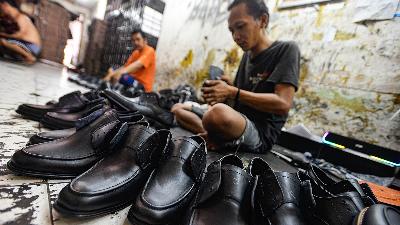
The disbursement of People’s Business Credit faces numerous challenges. Farmers and small business owners are vulnerable to loan sharks and middlemen.
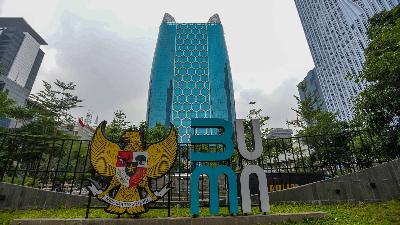
The plan for a super-holding for state-owned enterprises dates back to the New Order era. The SOEs Ministry will be replaced by a giant corporation.
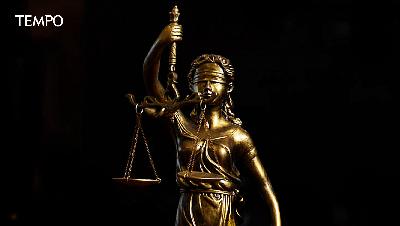
With the Supreme Court’s judicial mafia, when one branch is lopped off, another 10 grow in its place. It needs to be comprehensively cleaned up.

The Supreme Court dismissed three judges suspected of accepting bribes in the Ronald Tannur case. This adversely impacts efforts to improve the judiciary.
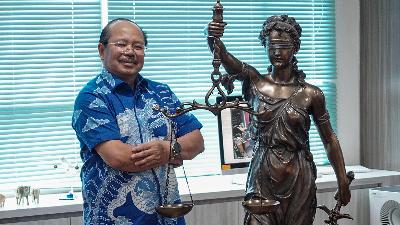
Judicial Commission Chair Amzulian Rifai on the corruption in judicial institution involving judges.

Driven by corporate demand, helicopter business opportunities continue to grow. Operators are increasingly expanding their fleets.

There is an increasingly real threat to Indonesia’s biodiversity. It cannot be overcome through empty slogans at international forums.
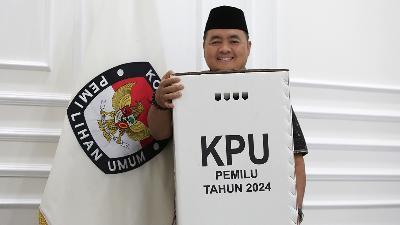
KPU Chair Mochammad Afifuddin on turbulence within his institution following the dismissal of Hasyim Asy’ari, and the Constitutional Court’s decision on the regional head elections.
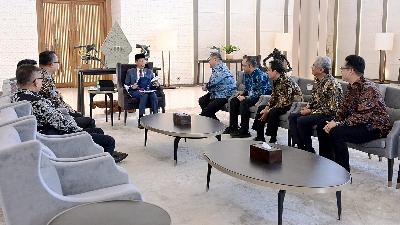
Various parties from the National Police Chief to the State Palace are accused of interfering in the KPK leadership candidates selection process. The candidates are divided into four clusters.
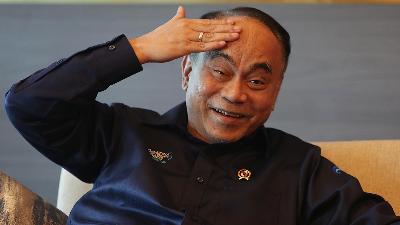
Tempo’s interview with Minister of Communication and Informatics Budi Arie Setiadi about Jokowi’s campaign before the end of his tenure.

As President Jokowi's term neared its end, instructions were given to promote the government's achievements, and billions of rupiah in contracts were offered to the media.
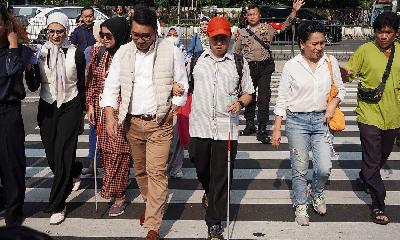
Jakarta governor and deputy governor candidates promise improvements in inclusive public transportation.
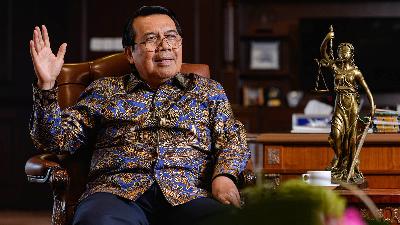
Supreme Court Chief Justice Muhammad Syarifuddin uses artificial intelligence to handle cases. Case brokers continue to be a threat.
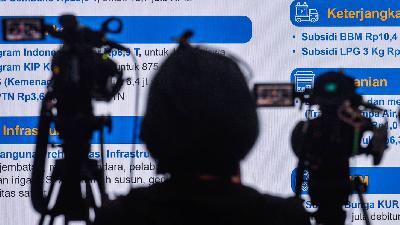
Media companies are experiencing upheaval due to the rapid changes in the business landscape. The industry is moving towards a new equilibrium.

Using a variety of pretexts, the political parties replace elected legislative candidates. This is a betrayal of the people’s choice.
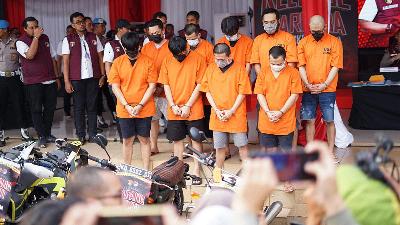
Hendra Sabarudin’s drug network distributed methamphetamine from Tarakan prison starting in 2017, allegedly aided by police and prison guards.

The government plans to dredge 17.6 billion cubic meters of sea sand and sediment, altering the landscape and destroying marine life.
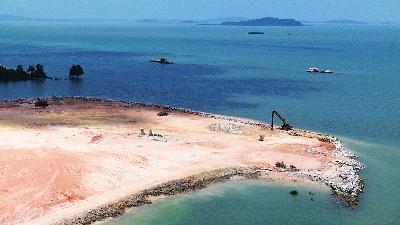
The government designated a number of areas as zones for cleaning sediment and sea sand.

Anindya Bakrie ousts Arsjad Rasjid from the position of General Chair of the Indonesian Chamber of Commerce and Industry (Kadin). The Palace’s support shifted.
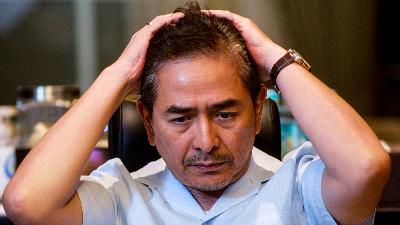
Anindya Bakrie ousted Arsjad Rasjid as the Chair of the Indonesian Chamber of Commerce and Industry (Kadin). The organization is becoming like a political party and enjoys large funds coming in from overseas.
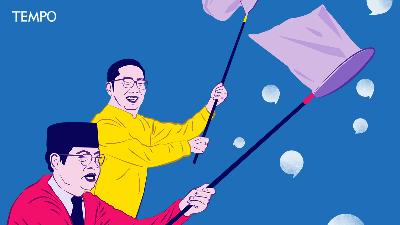
Gubernatorial candidates are trying to win over the votes of Anies Baswedan supporters in the Jakarta regional election. Jokowi reportedly shifted his support.
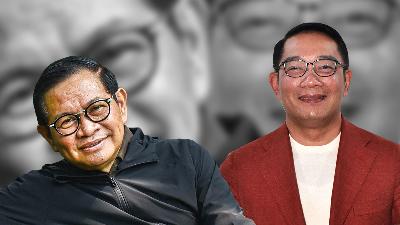
Pramono Anung and Ridwan Kamil shed light on the dynamics surrounding their appointments as Jakarta gubernatorial candidates.
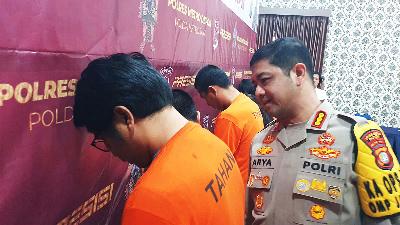
Police uncover baby trafficking syndicate operating in Java-Bali since 2023. Five babies were already sold.
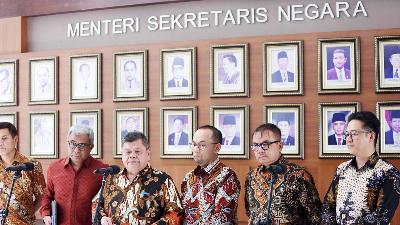
News summary on the conflict of interest of KPK leadership candidates and 44 ministries in Prabowo’s government.
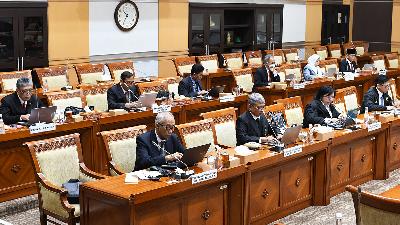
Commission III of the House of Representatives rejected all the Supreme Court judge candidates proposed by the Judicial Commission. The rejection allegedly was due to their favored candidate failed to pass.
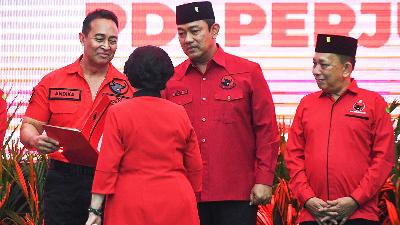
The Indonesian Democratic Party of Struggle (PDIP) strives to counter candidates supported by the Palace. It is an early projection for the 2029 General Elections.
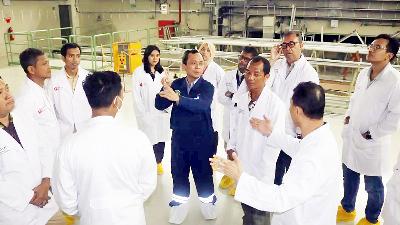
BRIN is designing the Peluit-40 nuclear reactor to replace diesel power plants, claiming it to be safer.
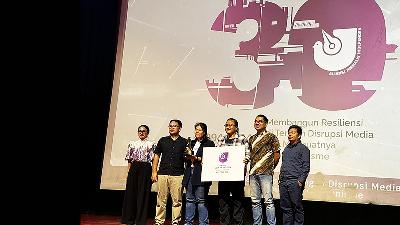
The Bocor Alus Politik podcast receives the Udin Award that we dedicate to our viewers and readers.
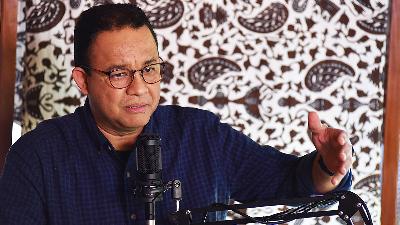
An exclusive Tempo interview with Anies Baswedan regarding his chances to run in the Jakarta regional head election.

Jokowi and Prabowo’s coalition are maneuvering to thwart Anies Baswedan’s candidacy in the Jakarta regional head election. Cabinet posts are being offered as inducements.

Tommy Hermawan Lo’s name emerges following the mention of Mr. T in online gambling that involves human trafficking case. He is a director at a casino management company.
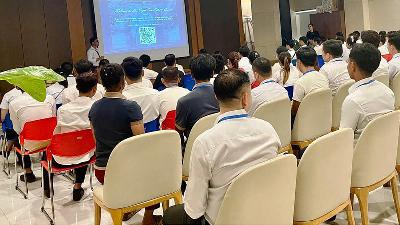
Victims of human trafficking for online gambling and scamming in Cambodia claimed of being forced to work 12-hour shifts and being beaten. Recruitment is still ongoing.
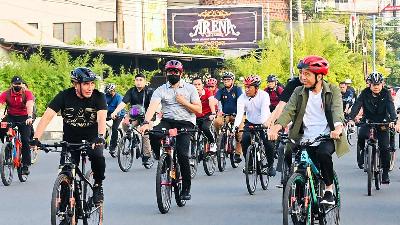
The battle in the presidential election is set to continue in regional head elections. The PDI-P is determined to challenge President Joko Widodo’s candidates.
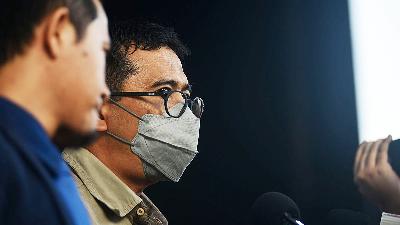
Personal protective equipment corruption suspect, Budi Sylvana, denied inflicting up to Rp300 billion of losses to the state. He revealed the roles of other officials in the case.
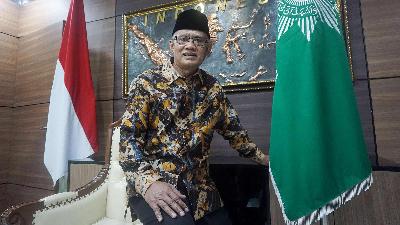
Muhammadiyah follows Nahdlatul Ulama’s step to accept mining concession offer from the government. Muhammadiyah General Chair Haedar Nashir explains about it.
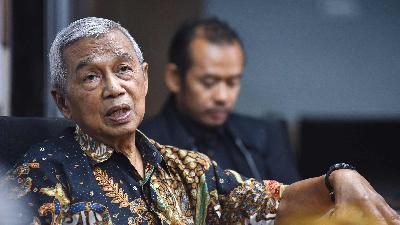
Muhammadiyah accepts the government’s mining concession offer. Many members are against it. Busyro Muqoddas, Chair of Muhammadiyah’s Law and Human Rights Council explains.

Muhammadiyah cadres and administrators are divided in their response to the mining concession. There are whispers from the government and the entrepreneurs.
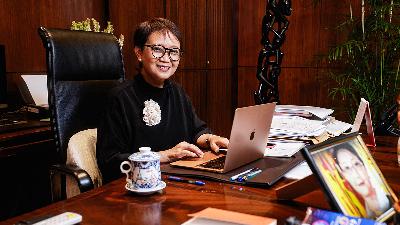
Retno Marsudi dismissed the idea that the government is merely meddling foreign affairs. She emphasized that Indonesia is a trusted partner on the international stage.
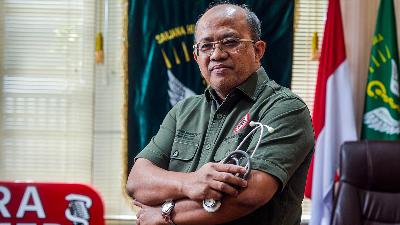
Chair of IDI, Mohammad Adib Khumaidi, discusses the polemic over the plan to allow foreign doctors to practice in Indonesia. He emphasizes stringent regulations are necessary.
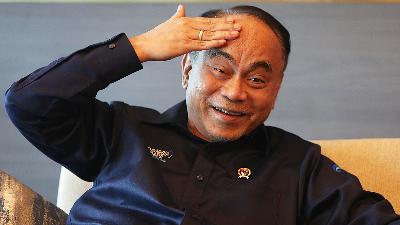
Communication and Informatics Minister Budi Arie explains the cyberattack on the Temporary National Data Center. He dismisses allegations of negligence.

Infinite Earth responds regarding the revocation of Rimba Raya Conservation’s ecosystem restoration permit.

There will be a wave of layoffs at Tokopedia as a result of inefficient practices. This is the result of government policy rife with conflicts of interest.
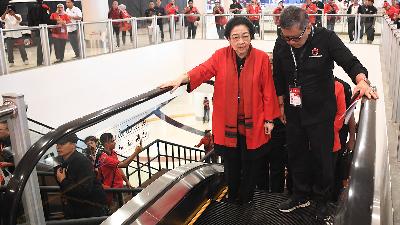
The PDI-P is preparing to replace Hasto Kristiyanto after he was questioned by the KPK in the Harun Masiku case. They are wary of the Palace’s interference.
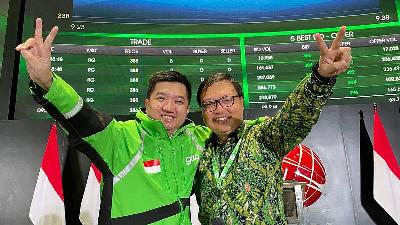
The founders of GoTo and Tokopedia sold their shares. New investors now have control of ownership.

Tokopedia made significant cuts in its workforce following its business consolidation with TikTok. A consequence of inefficient business operation.
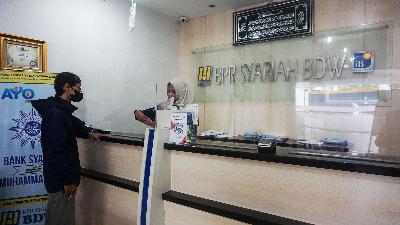
Muhammadiyah’s business networks cover various sectors, from education to financial services. It seeks to create a closed economic ecosystem.

Muhammadiyah withdrew trillions of rupiah from Bank Syariah Indonesia. It was the accumulation of various problems, from operational matters to appointment of commissioners.
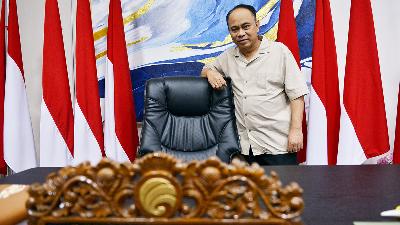
Communication and Informatics Minister Budi Arie Setiadi talks about the polemic over the planned revision of the Broadcasting Law and the Starlink Internet service.
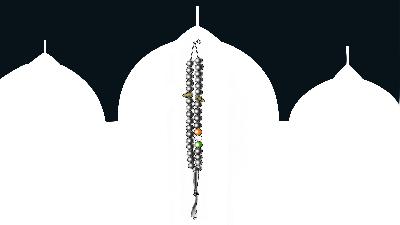
Narendra Modi is likely to serve his third term as the Prime Minister of India. His campaigns are based on populism and religion.
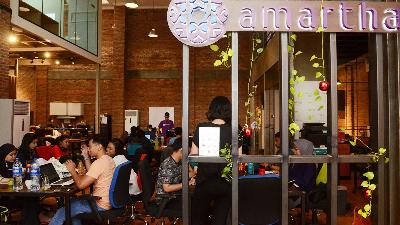
The fintech lending business is increasingly losing steam. Returns continue to decline while fund owners are opting for other investment portfolios.
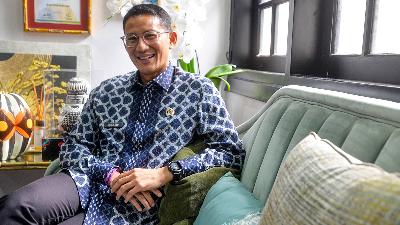
Tourism and Creative Economy Minister Sandiaga Salahuddin Uno assures that the tourism fee will not be imposed on plane tickets.
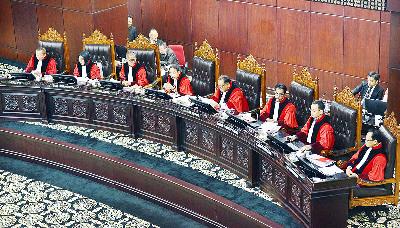
The Constitutional Court rejected lawsuits disputing the results of the 2024 presidential election. The option of disqualifying Gibran was discussed in a meeting of the judges.
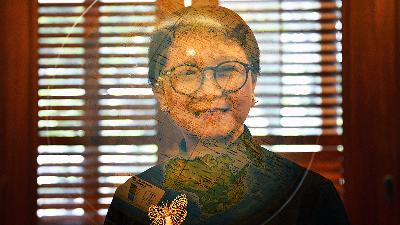
Foreign Affairs Minister Retno Marsudi explains the Gaza war and the Iran-Israel conflict with its impact on Indonesia’s economy.
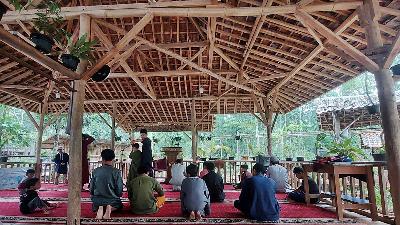
Islamic boarding schools (pesantren) cannot be closed even if they do not have a license from the government. There is no protection from the Ministry of Religious Affairs if legal problems arise.
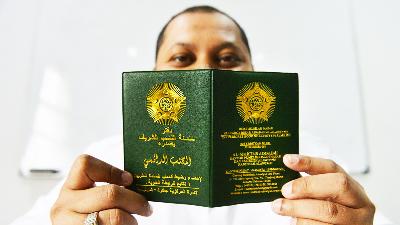
The Rabithah Alawiyah organization is in charge of recording and preserving the line of descent of the Alawiyyin in Indonesia. Seven books from Yemen serve as their guide.
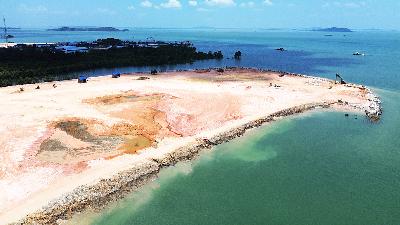
Several companies are applying for permits to utilize sediment, including sea sand. Large corporations use landfills for land reclamation areas.

Indigenous people are taking legal action against the President and the DPR for delaying deliberations of a bill. It has taken second place to the interests of investors.
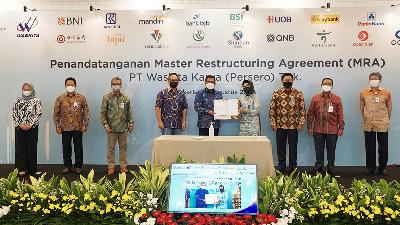
State banks stop distributing loans to state construction companies. Government assignment projects are burdening banks.
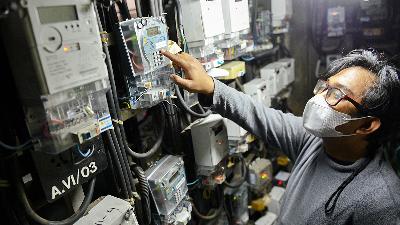
The government opens the option of switching energy subsidies for the free lunch program. This threatens poor households.

The government issues a regulation to develop the game industry. There will be a special funding agency.
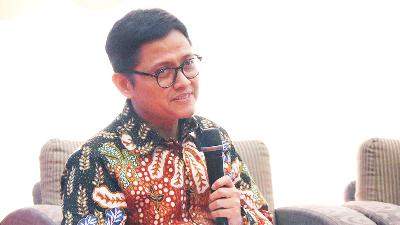
Discussions of the Asset Recovery Draft Law is stagnating in the DPR. It is key to preventing money laundering.

TikTok Shop’s acquisition of Tokopedia changes the Indonesian business map. It is not clear how small and medium enterprises will be protected.
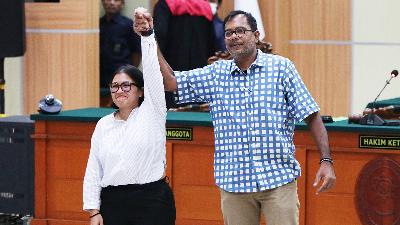
The prosecutor persists in filing a cassation against the acquittal of Haris Azhar and Fatia Maulidiyanti. It is a threat to the freedom of expression.

GoTo CEO Patrick Waluyo reveals the story behind the selling of Tokopedia shares to TikTok. How much profit did GoTo get?
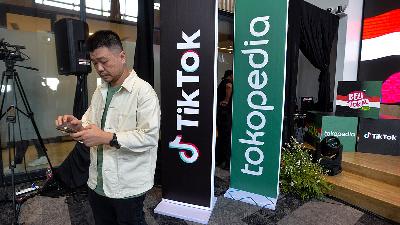
The integration of TikTok Shop with Tokopedia will reinforce GoTo’s business. Indonesia’s e-commerce competition landscape is changing.
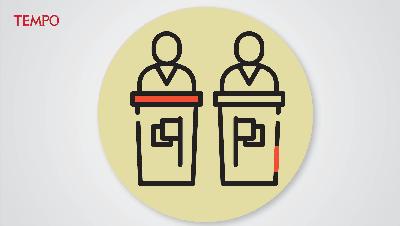
The presidential and vice-presidential candidates are relying entirely on gimmicks to exploit the emotions of the people. This moves the campaign away from substantive discussions.

Do the presidential candidates succeed in attracting young voters with social media gimmicks?
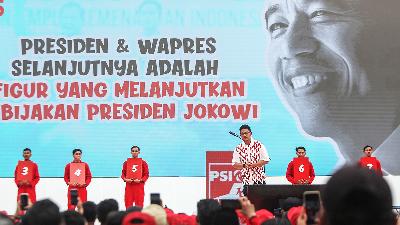
How does the Indonesian Solidarity Party get its funding? Is the aid from conglomerate bosses like Djarum’s owner true?

Presidential Chief of Staff Moeldoko is writing regarding his alleged interference in electric vehicle policy over Wuling’s SNI certification.

Post-Firli Bahuri, the Corruption Eradication Commission (KPK) is still walking backward toward its grave. A radical reform is needed.

The presidential candidates’ campaign teams are an illustration of the type of government they would form if elected. Businesspeople have a central role.
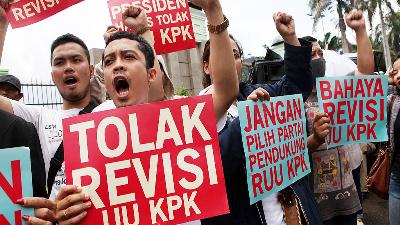
The Corruption Eradication Commission is no longer independent ever since it became part of the executive body. The fruit of the revised KPK Law.
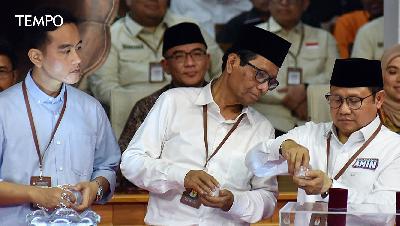
In Indonesia, presidential candidate debates are planned as bogus performances. There is no in-depth discussion of the issues.

Yet again, a member of the Supreme Audit Agency is involved in corruption. The system for selecting these state auditors is very poor.
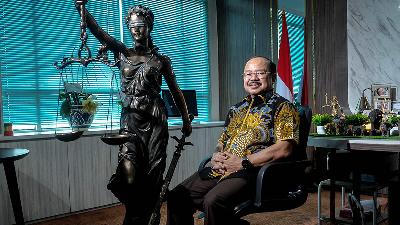
Judicial Commission Chairman Amzulian Rifai explains the boundaries of his authority in dealing with judges, and the Judicial Commission Bill.
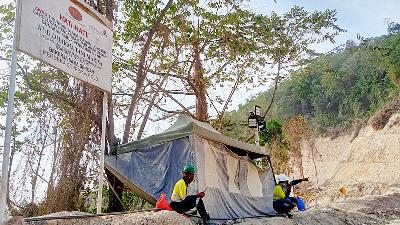
Sandiaga Uno and Garibaldi Thohir’s company is in conflict with local miners. The amount of compensation is considered inadequate.
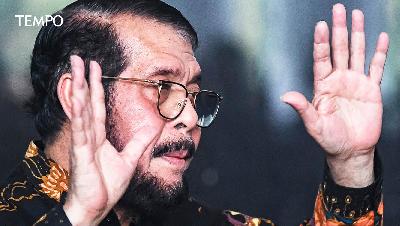
Having no democratic legitimacy, Gibran Rakabuming Raka must withdraw his candidacy for the vice-presidency.
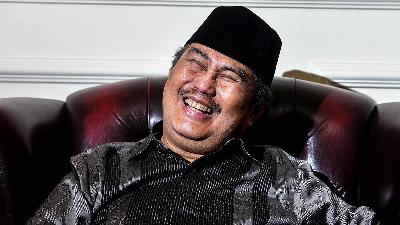
Tempo's special interview with MKMK Chairman Jimly Asshiddiqie regarding the dismissal of Anwar Usman as Chief Justice of the Constitutional Court.
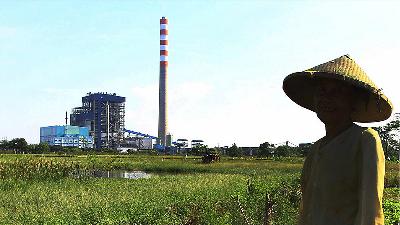
The program to put coal-fired power plants (PLTU) into early retirement is hampered by funding problems. As grants are stuck, the state budget must be disbursed.

Nepotism is the close relative of corruption and dictatorship. The Indonesian Independence Proclamation places nepotism as a threat to independence.
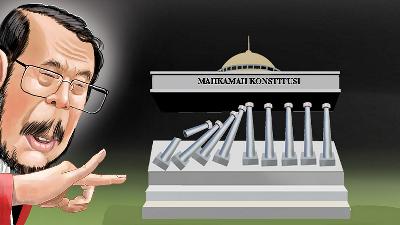
Constitutional Court Chief Justice Anwar Usman is reportedly maneuvering to lower the minimum age limit for presidential and vice-presidential candidates, paving the way for Gibran.
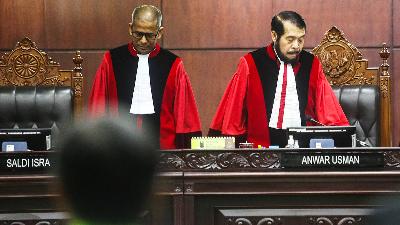
The Constitutional Court reportedly already made a decision in favor of a lawsuit regarding the minimum age requirement for presidential and vice-presidential candidates. The issue is rife with conflicts of interest.

Carbon trading is simply a way to mitigate climate change. The main aims are the energy transition and environmental protection.
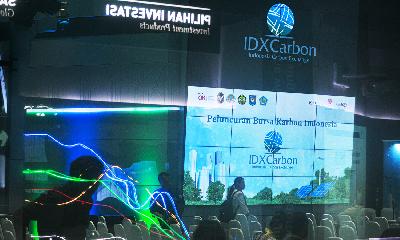
The Indonesian Stock Exchange established four carbon trading mechanisms. There were 27 transactions in three schemes in the initial sale.

Presidential candidates’ supporters are creating unfavorable atmosphere in the build-up to the 2024 general elections with them more inclined to speak about rivals’ weaknesses than promoting their champions’ profiles.
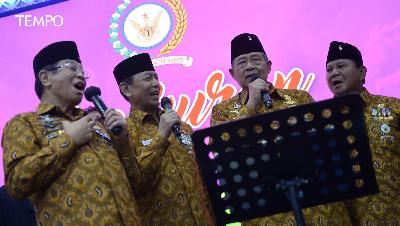
The 2024 presidential candidates are competing to garner support from retired generals. This perpetuates the militaristic nature of Indonesian politics.

The plan from the OJK to introduce carbon units as securities could lead to problems. Carbon trading no longer means a reduction in emissions.

The three soldiers who allegedly killed a civilian should be tried in a criminal court. The Military Courts Law needs to be revised.
Independent journalism needs public support. By subscribing to Tempo, you will contribute to our ongoing efforts to produce accurate, in-depth and reliable information. We believe that you and everyone else can make all the right decisions if you receive correct and complete information. For this reason, since its establishment on March 6, 1971, Tempo has been and will always be committed to hard-hitting investigative journalism. For the public and the Republic.